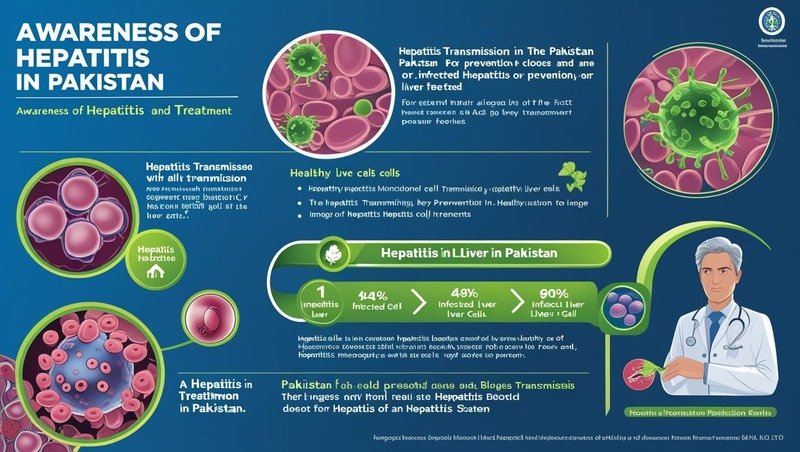
According to James May, “modern man is in crisis.” He has retreated into the public portrayal of himself as a witless underachiever who is unable to take care of himself or people around him, abandoning the unquestionable pillar that he developed over decades of refining. In this world of fierce competition, concentrating just on the practical, financial, and materialistic aspects of a man’s value and worth has shown to be counterproductive in terms of curing and saving people from a variety of worldwide problems.
World Mental Health Day is commemorated on October 10 every year to promote efforts to support people’s mental health and to raise awareness of mental health issues globally. The WHO has announced that this year’s topic is “Mental Health at Work.” It undoubtedly highlights the vital significance of mental health in the workplace, and it is especially pertinent in light of the growing awareness of the impact that work environments have on employees’ mental health and fitness.
The care and treatment of individuals with mental problems has been the focus of contentious socio-political debates and observations throughout the past thirty years. Because psychosomatic disorder affects all facets of life, it has emerged as one of the most significant worldwide health issues. It is more important than ever to address mental health issues, with over 264 million people worldwide suffering from depression alone and millions more from other mental illnesses, including anxiety.
We can’t ignore the reality that all the most valuable creation, product, and production of the universe—human beings—are the reason behind modernization trends, technological breakthroughs, space and planet conquests, and socioeconomic developments. Therefore, the spirit and essence of the human being cannot be sacrificed on the altar of automation and robotic results. More than just a location for career advancement, the workplace is where workers spend the majority of their waking hours. For better or worse, an individual’s mental health can be greatly impacted by the nature of their workplace. While a toxic workplace can increase stress and cause major mental health issues including depression, anxiety, and burnout, a supportive and inclusive workplace can help prevent mental health challenges and contribute to an employee’s overall well-being.

Unfortunately, physical fitness, safety, and worker precautions are the first things that come to mind when discussing or simply thinking about health difficulties at work. In general, psychological and mental health issues are not acknowledged or acknowledged in society, particularly in our region of the world. Here, it is uncommon to anticipate that such concerns will be recognized and acknowledged at work. We have been working very hard to ensure that workers, particularly those in blue-collar jobs, have access to safety helmets, protective costumes, and other measures. For the purpose of keeping the workforce physically fit, we even do not bother to create a very basic sort of dispensary or general medical unit that is furnished with the bare minimum of amenities and qualified paramedical staff.
It wouldn’t be incorrect. Some argue that the COVID-19 pandemic’s aftermath, globalization, and technological breakthroughs have all had a major impact on the modern workplace’s changes in recent years. Employee stress levels have increased despite the fact that these developments have created new opportunities. The stresses of high productivity, long hours, ongoing connectedness, and job uncertainty have put workers under hitherto unheard-of mental strain. As a result, addressing mental health in the workplace is now crucial for maintaining an organization’s productivity and sustainability as well as for the wellbeing of its workforce.d more
Man is a unique creation of nature, with limitations, diversity, and most importantly, psycho-emotional mechanisms that the mad business gurus and management doyens need to take into account and realize. Research has indicated that individuals with low mental health Employees’ missed productivity costs the world economy billions of dollars annually. The World Health Organization (WHO) estimates that lost productivity from depression and anxiety alone costs the world economy $1 trillion annually. The consequences of not addressing mental health concerns are extensive. A few of the results that hurt people and organizations alike are reduced productivity, absenteeism, and presenteeism (being physically present at work but mentally disengaged). Workplace mental health issues can be caused by a variety of circumstances. These consist of an overwhelming amount of work, arbitrary deadlines, inadequate management, not having control over one’s tasks, job uncertainty, and harassment or bullying. Employees in high-pressure settings could feel as though their workload is too much for them to handle, which could result in chronic stress that worsens psychological well-being.
Work-life balance has also grown more elusive for many. As digital connectedness has grown, it has become more difficult to distinguish between personal and work time. Workers who struggle to detach themselves eventually experience burnout, which is a condition of extreme emotional, physical, and mental tiredness brought on by ongoing stress. Because burnout is sometimes misdiagnosed as a genuine health problem instead of a loss of enthusiasm or subpar performance, it is especially alarming. Consequently, rather than being treated with compassion and empathy, those who suffer from such psychological problems are subjected to incredibly harsh methods and regulations.

To emphasize the point, the theme of World Mental Health Day 2024, “Mental Health at Work,” provides a pertinent reminder of the importance of emphasizing mental health in government and corporate settings. As As the workplace continues to advance, it is imperative that authorities take proactive steps to establish environments that prioritize mental health. Managers can help their employees’ mental health in addition to their professional success by fostering open communication and cultural sharing, eradicating stigma, providing support tools, and encouraging work-life balance. It will open the door to creating more contented and committed workers as well as more robust and long-lasting relationships. Stephen Covey once said, “The challenge of work-life balance is without question one of the most significant struggles faced by modern man.” I would love to end with his wise words.
The Crisis of Modern Man
James May asserts: “The modern man is in crisis. Degenerato dallo solido pilastro che era devoto a secoli di impegno, scivolando nella rappresentazione populare di se stesso come un incapace, inadatto a prendersi cura di se o degli altri. Focusing solely on the pragmatic, economic, and materialistic aspects of a man’s worth and dignity in this competitive world has been shown to be counterproductive in terms of human rights violations and the preservation of human dignity in the face of numerous global issues.
The International Day of Mental Health: Emphasis on Work
Every year on October 10th, there is a celebration known as World Mental Health Day, which aims to raise awareness within international society about mental health issues and encourage efforts to support people’s psychological well-being. This year’s theme, as announced by the OMS, is “Mental Health on the Job.” This topic emphasizes the critical importance of psychological well-being in the workplace, an increasingly recognized aspect due to the role that work environments have in employees’ mental health.
The worldwide impact of mental disturbances
Negli ultimi trent’anni, la cura e il trattamento delle persone affette da disturbi mentali sono diventati oggetto di accese discussioni socio-politiche. Il disturbo psicosomatico è oggi uno dei principali temi globali in ambito sanitario, con impatti che si fanno sentire in tutti i settori della vita. Con oltre 264 milioni di persone nel mondo che soffrono di depressione, e milioni di altri affetti da condizioni come l’ansia, è evidente che la necessità di affrontare le problematiche legate alla salute mentale non è mai stata così urgente.
How Important Supportive Work Environments Are
We must never lose sight of the fact that all technological advancement, spatial conquest, and socioeconomic development serve humanity—the most valuable creation in the universe. Therefore, human essence and spirit cannot be sacrificed in order to elevate automation and robotic outcomes. More than just a place for professional accomplishment, the workplace is where employees spend a significant portion of their active lives. The environment here has the potential to significantly affect people’s mental health, both positively and negatively.
A supportive and inclusive work environment can help prevent mental health problems and improve the dependent’s overall well-being. On the other hand, a toxic environment can increase stress and lead to serious issues like depression.l’ansia e il burnout.
The disregard for Mental Health in Workplaces
On the other hand, while discussing health issues at work, people frequently focus only on physical appearance and security measures. Particularly in our area, mental health issues are not recognized or taken into consideration by society at large. It is rare to recognize such questions in a work environment. Many businesses still find it difficult to provide fundamental protections like safety nets and locks, or to provide medical facilities staffed by qualified personnel to ensure the physical well-being of their employees.

The role of businesses in mental health
The world of work has undergone significant changes in recent years due to globalization, technological advancements, and the COVID-19 pandemic’s aftermath. Although these changes have brought about new opportunities, they have also increased stress levels for workers. Long hours, constant connection, lack of flexibility at work, and the pressure of productivity have created a mental strain that has never been seen in dependents before.
As per l’OMS, i trilioni di dollari stranieri in termini di produttività persa sono dei costi dell’economia mondiale a causa della depressione e dell’ansia. Ignoring mental health has a number of detrimental effects, including decreased productivity, absenteeism, and physical presence without meaningful mental involvement (presenteism). These phenomena harm not only individuals but also businesses.
The Challenge of Equilibrium between Private Life and Work
A lot of times, the balance between personal and professional life has become unstable. Digital connection has become harder to break, leading to burnout, a state of physical, emotional, and mental exhaustion brought on by prolonged stress. Burnout is particularly concerning because it is frequently misinterpreted as a lack of motivation or poor performance, rather than as a legitimate health issue.
The importance of mental health in organizations
The theme of the 2024 World Mental Health Day, “Mental Health on the Job,” reminds us of the need to place a high priority on psychological well-being in businesses and institutions. In an ever-evolving work environment, it is essential that businesses adopt specific measures to create workspaces that enhance mental health. Fostering an environment of openness, eradicating stigma, providing resources for assistance, and encouraging work-life balance can ensure that dependents thrive both emotionally and professionally.
In conclusione, la sfida dell’equilibrio entre lavoro e vita è, sin dubbio, una delle più grandi lotte affrontate dall’uomo moderno. Quo va Stephen Covey?










Leave a Reply